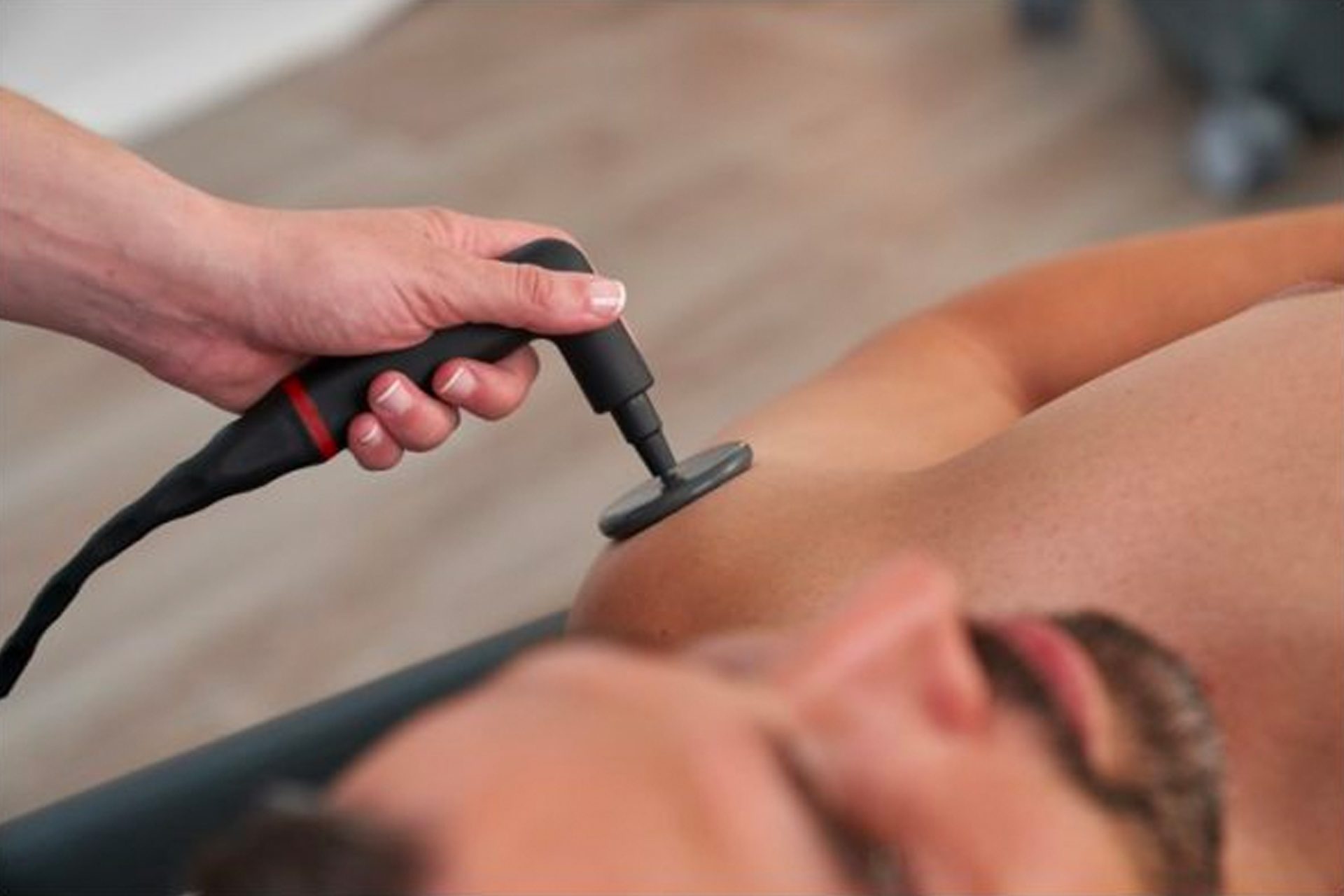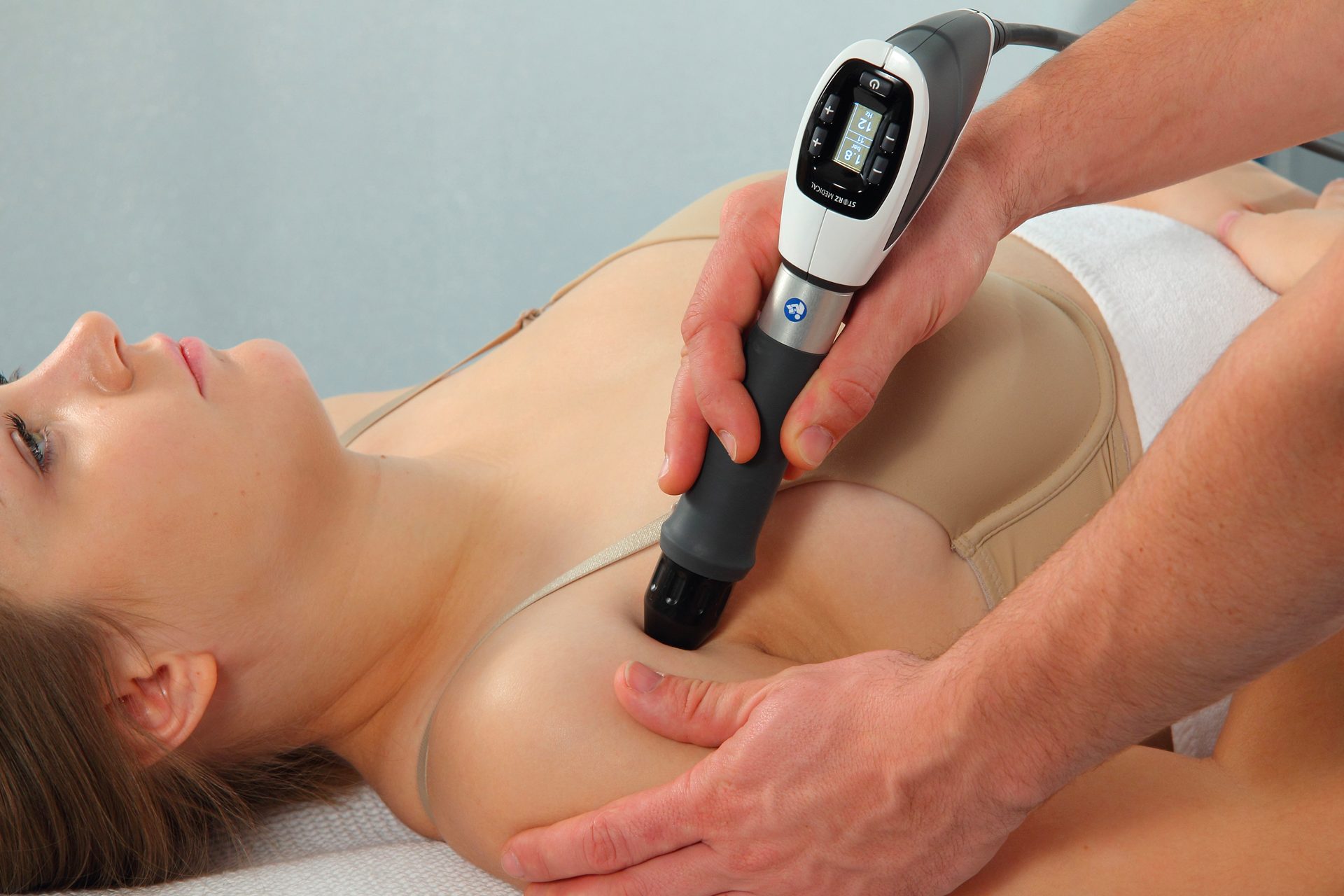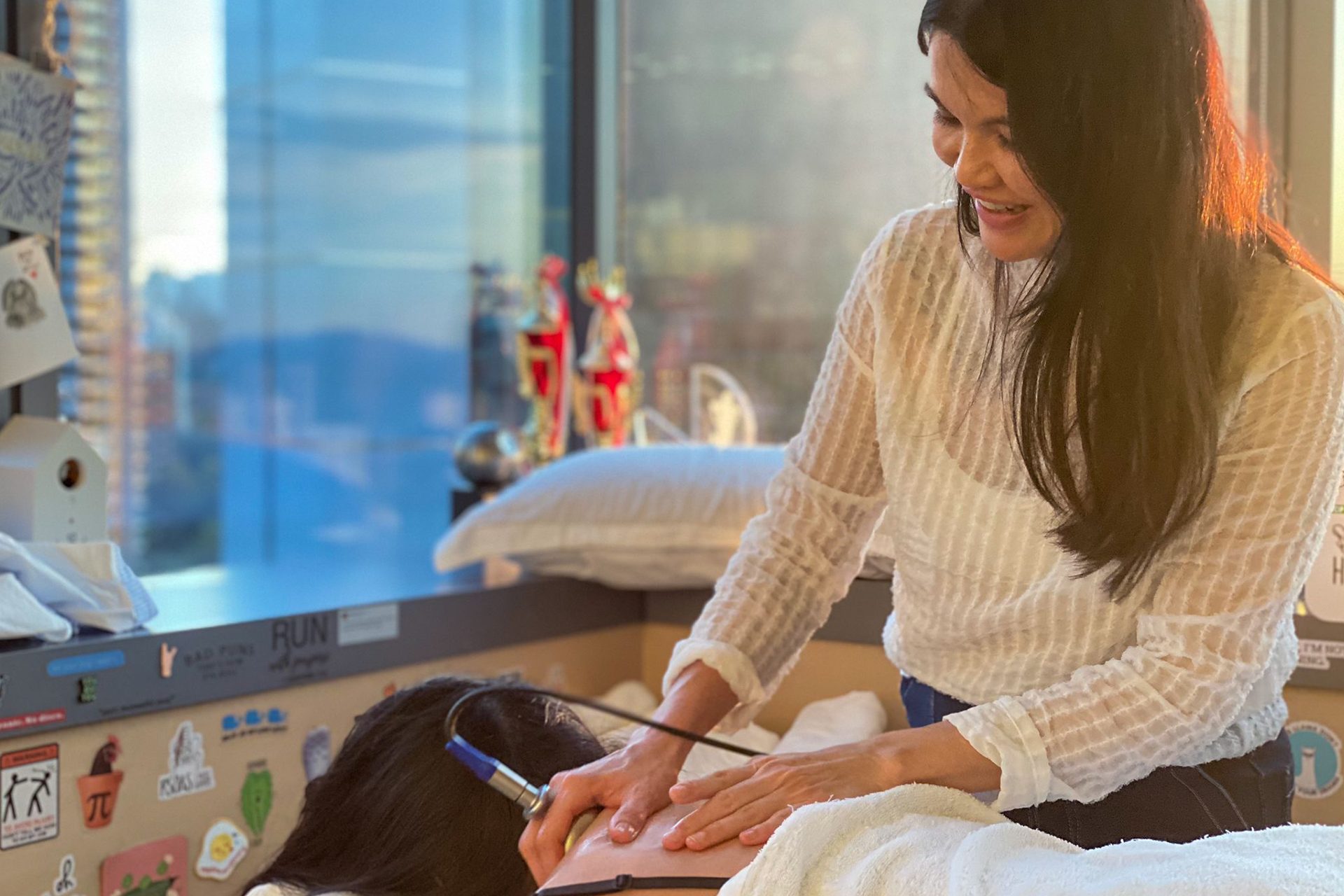Musculoskeletal Disorders
Physiotherapy for Shoulder Pain
Shoulder pain is very common, and the underlying causes include workplace strains, sports activities, and improper digital workplace-related ergonomics. The first step towards recovery is understanding the warning signs, as persistent symptoms can restrict your ability to carry out simple daily activities at home and in the workplace.
In Singapore, musculoskeletal disorders were reported in 73.4 percent of office professionals, with 42 percent being shoulder-related.
Those who engage in repetitive high-contact sports or tennis may be at higher risk for shoulder pain, with the incidence of injury increasing due to overuse or overextension.
Knowing the warning signs and differences between a small shoulder problem requiring rest and symptoms of a potentially debilitating injury is essential to developing a shoulder treatment plan to relieve pain.
Explore Shoulder Conditions


Shoulder Impingement vs Instability
The main difference between shoulder instability and shoulder impingement is that instability is a symptom, while impingement is a condition.
Shoulder impingement accounts for almost half of all reported shoulder injuries and can stem from other conditions like bursitis or rotator cuff tendonitis. Shoulder impingement syndrome is a condition in which your shoulder blade has fallen out of alignment and impinges on your rotator cuff due to a past injury causing swelling in the muscles and tendons in the area.
This creates pain, especially during certain movements at or above 90 degrees from stretching overhead for a tennis return or simple daily activities like reaching for a cup in the cupboard. This swelling displaces the shoulder blade, forcing it onto the rotator cuff, creating discomfort and pain.
Shoulder instability is exactly what it sounds like — your shoulder may feel loose, like it is slipping out of the joint, or you may experience frequent pain in the shoulder area.
If you’ve been experiencing shoulder pain from an injury for more than 2 weeks, schedule a consultation with our physiotherapists. An accurate diagnosis will help to treat and manage your musculoskeletal condition, as each pathology has its distinct pain pattern.

Shoulder Pain and Common Shoulder Problems
Many people struggle to reclaim full function following a shoulder injury. A shoulder injury can have far-reaching consequences in all aspects of a person’s life. Our physical therapy team is well-versed and knowledgeable in musculoskeletal disorders and effective adjunctive shoulder pain treatments to improve your mobility and function.
HelloPhysio provides rehabilitative services to treat conditions related to shoulder pain:
- Arthritic joints in your shoulder can become inflamed, creating pain in the shoulder. Osteoarthritis occurs when the cartilage in these joints wears down over time, causing undue friction in the shoulder. In rheumatoid arthritis, the immune system attacks the membranes in the shoulder joints, creating inflammation and pain.
- Dislocations after a bad fall or direct impact can shift your shoulder bone out of its socket. Once your shoulder has been dislocated, the chances of it being dislocated again significantly increase.
- Frozen Shoulder is a condition where synovial tissues thicken and adhere to the bones, decreasing the shoulder joint’s range of motion and increasing chronic inflammation and fibrosis. The condition occurs when the shoulder is immobilized or has not moved for a period of time. Pain often starts after a rotator cuff injury, broken arm, stroke, or following surgery. Rehabilitation for chronic conditions like adhesive capsulitis benefits from a combination of treatments.
- Joint Instability feels like your arm is falling out of its socket, or you have limited control over its mobility. This likely stems from a different condition, like tendonitis.
- Neuropathy / Nerve Injuries in your shoulder can become damaged from conditions like diabetes which affect the health of your nervous system that causes pain or, in worse cases, complete numbness of the shoulder.
- Repetitive Stress Trauma leads to injuries from overuse and repetitive shoulder movements, especially in people who work in physically intensive jobs with repeated motions, as with certain sports, like tennis or swimming.
- Rotator Cuff Tears are caused by tendon degeneration from normal aging or an acute injury, like a fall. Physical therapy is a viable and effective treatment for nontraumatic rotator cuff tears that can produce results equal to arthroscopic surgery or open surgical repair.
- Shoulder Dysfunction makes it harder to move your shoulder as the nerves in your back and neck can be weakened. This could be due to a muscle injury or a tumor.
- Tendinitis results from abnormal forces on tendons, whether due to the demands of a labor-intensive job, overhead activity, sports, or posture. Overuse creates inflammation, swelling, and painful impingement when lifting your arm.
- Trauma may be acute, such as a dislocated shoulder, acromioclavicular joint injuries, clavicle fractures, glenohumeral dislocations, proximal humerus fractures, and torn rotator cuffs. Or, the pain can result from an underlying condition such as diabetes, thyroid disease, heart disease, or Parkinson’s disease.
Sometimes surgery is unavoidable for certain shoulder conditions. Still, depending on the severity and situation, a combination of physiotherapy and adjunctive modalities proves efficient and safe for shoulder pathologies.
Why Is Physiotherapy Important after Shoulder Surgery
Physiotherapy is both important before and after surgery. By building strength and flexibility safely before your surgery, your post-operative outcomes can improve, with a quicker recovery time and less loss of mobility. People often don’t realize the importance of prehabilitation and opt only for treatment after surgery.
After surgery, scheduling a consultation with a physiotherapist is vital to safe recovery and preventing undesired conditions like a frozen shoulder. Some people develop this condition after surgery, as they barely move their shoulders while they recover — immobilization is one of the primary frozen shoulder causes. Patients can avoid getting frozen shoulder with regular physical therapy and shoulder pain exercises to maintain mobility and ward away stiffness.
Physiotherapy can also help you rebuild strength faster as your muscles recover post-surgery. This is especially important for athletes who want to return to their sport. Getting back into the game without adequate recovery time or attempting to build strength too aggressively after an injury can lead to further injury.

Leading Physiotherapy Treatments for Shoulder Pain
If you’ve been suffering from left or right shoulder pain for more than 2 weeks or experienced an acute shoulder injury, make an appointment with our physiotherapy team to diagnose your condition properly. Pushing through the pain can exacerbate the issue. If you’re playing a sport with an aching shoulder, it’s best to schedule a physical therapy consultation to ensure that your injury is not something that lingers or worsens over time to require surgery.
In rotator cuff tears, calcium deposits often form on tendons in the shoulder joint. Shockwave therapy passes low-energy acoustic waves noninvasively through the surface of the skin deep into the affected area. It breaks down calcification to improve the functional range of motion and reduce pain to replace surgical intervention for some patients. This adjunctive therapy also aids in vascularization, enhancing oxygenation and nutrient uptake to reactive connective tissue healing for improved function and shoulder pain relief.
Clients can typically return to work, play sports, and exercise directly after their shoulder treatment.
With INDIBA Activ, treatment is applied in acute and subacute phases, increasing the number of shoulder pathologies that can be treated with this leading radiofrequency technology, including frozen shoulder, acute trauma to tendinitis.
The treatment applies currents much deeper into even the most resistive tissues to trigger a series of reactions involved in cellular repair, inflammation reduction, and tissue regeneration. These include increased replication of fibroblasts, keratinocytes, and osteocytes and the increased synthesis of collagen and elastin. In addition, the therapy aids in the reabsorption of edemas and hematomas, improving the speed and quality of healing.
After an injury or surgery, a Clinical Pilates conditioning program works on strength and flexibility to help reduce shoulder pain and return to an active lifestyle faster. Even if you think your injury has been resolved, it’s important to visit a physiotherapist so they can show you how to strengthen your shoulder and prevent that from becoming a recurring injury.
Building shoulder stability by strengthening the muscles improves the shoulder’s optimal function to prevent further injury. Stretching the muscles around the shoulder restores the range of motion to elongate and keep your muscles flexible.
All these conditions can significantly affect your quality of life, but getting immediate treatment at HelloPhysio breaks the pain cycle to improve your quality of life.
Shoulder Pain Clinic Consultation
It can be challenging to recover from a shoulder injury, and many people struggle to reclaim their ability to function and be independent. An injury to the shoulder can have significant consequences in all aspects of a person’s life. If you’ve been injured and are looking for a comprehensive treatment plan to help you reach your recovery goals, the team at HelloPhysio shoulder pain clinic in Singapore is here to help.
We work closely with orthopaedic surgeons to develop individualized shoulder pain treatment plans tailored specifically for you. Contact us today to learn more about our services and how we can help get you back on your feet.

